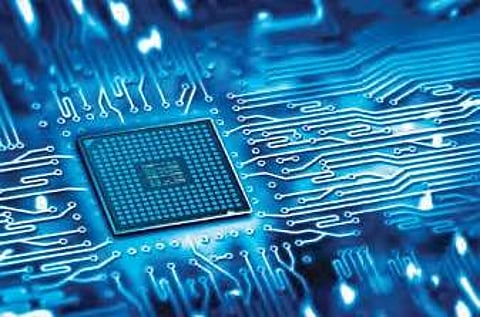

HYDERABAD: Heavy computation and power-hungry neural networks are the trademarks of artificially intelligent devices which together make the latter bulky and limit its portability. To address these issues, researchers at Indian Institute of Technology, Hyderabad (IIT-H) have developed low-power chips which use the least amount of energy without compromising the device’s accuracy.
Published in the journal, Nanotechnology, the research is based on a vision of developing magnetic chips for ultra-low power portable AI devices and uses the Dipole coupled Magnetic Quantum-dot Cellular automata (MQCA)-based nanomagnetic computing.
Speaking to TNIE, Dr Amit Acharyya, associate professor at IIT-H said, “We have modelled, designed and implemented an arithmetic adder and subtractor, the basic building blocks of performing AI computing, using nanomagnets. Our work targets devices which have a significant research investment towards making it low-power without compromising on accuracy. Performing AI computing on edge with approximate nanomagnetic logic deployed on the magnetic ICs is an attempt towards the futuristic computations.”
Explaining the achievement of the research, PhD scholar Santhosh Sivasubramani said, “Traditionally, electronic phenomena is used for information processing (CMOS) and the magnetic phenomena for data storage (hard disks). But, the traditional CMOS devices consume power supply even to maintain the logic states, thus making it volatile. Intrinsic energy minimisation and non-volatility of nanomagnets aid MQCA-based NML devices helps resolve both issues.”
We have succeeded in reducing the number of nanomagnets and clock cycles by 50 to 80 per cent with more accuracy in comparison to traditional nanomagnetic logic design, he added.